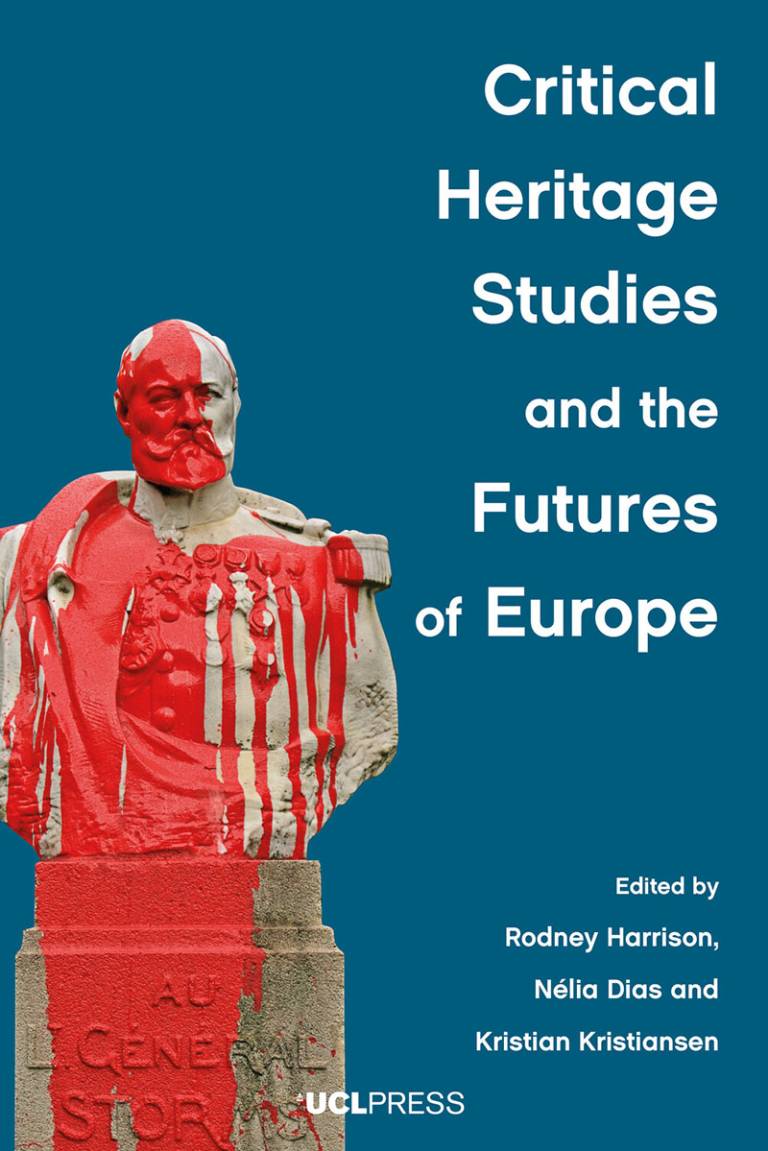Critical Heritage Studies and the Futures of Europe
26 October 2023
A new open access volume, Critical Heritage Studies and the Futures of Europe, has been published by UCL Press.

Critical Heritage Studies and the Futures of Europe, edited by Rodney Harrison, Nélia Dias, and Kristian Kristiansen, is the final outcome of the Marie Sklodowska-Curie actions (MSCA) Innovative Training Network (ITN) “CHEurope: Towards an integrated, interdisciplinary and transnational training model in cultural heritage research and management.”
Cultural and natural heritage are central to ‘Europe’ and ‘the European project’. They were bound up in the emergence of nation-states in the eighteenth and nineteenth centuries, where they were used to justify differences over which border conflicts were fought. Later, the idea of a ‘common European heritage’ provided a rationale for the development of the European Union.
Now, the emergence of ‘new’ populist nationalisms shows how the imagined past continues to play a role in cultural and social governance, while a series of interlinked social and ecological crises are changing the ways that heritage operates. New discourses and ontologies are emerging to reconfigure heritage for the circumstances of the present and the uncertainties of the future.
Taking the current role of heritage in Europe as its starting point, Critical Heritage Studies and the Futures of Europe presents a number of case studies that explore key themes in this transformation. Contributors draw on a range of disciplinary perspectives to consider, variously, the role of heritage and museums in the migration and climate ‘emergencies’; approaches to urban heritage conservation and practices of curating cities; digital and digitised heritage; the use of heritage as a therapeutic resource; and critical approaches to heritage and its management. Taken together, the chapters explore the multiple ontologies through which cultural and natural heritage have actively intervened in redrawing the futures of Europe and the world.
The fully open access monograph may be downloaded from the UCL Press website.
The CHEurope project, which ran from 2016-2021, was a collaboration involving the University of Gotheburg, UCL, University of Amsterdam, University Institute of Lisbon, Spanish National Research Council, University of Hasselt, University of Utrecht, Istituto per i Beni Artistici Culturali e Ambientali della Regione Emilia Romagna and was funded under the Horizon Europe MSCA-ITN-2016 - Innovative Training Networks call.
 Close
Close

